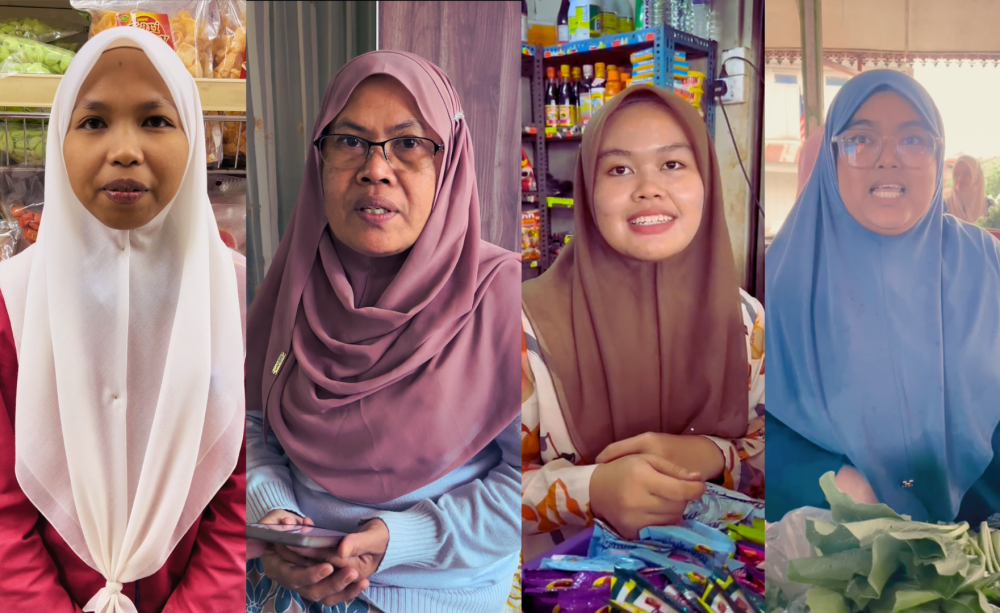Kelantan women are challenging societal marriage norms with power of choice

KOTA BHARU - Amidst an exploration of marriage dynamics, recent statements by Kubang Kerian MP Datuk Seri Tuan Ibrahim Tuan Man back in November sparked outrage among Malaysians after proposing that polygamy as a solution to the rising number of single women in Malaysia, aiming to address societal challenges by offering an alternative perspective on marital relationships.
It is a bitter to pill to swallow but for unmarried Malaysian women - regardless divorced or not, societal scrutiny looms large, especially as they reach the age of 30. The age-old questions of financial independence, childlessness, and the ability to lead a fulfilling life unbridled by marital ties become commonplace.
These notions perpetuate a culture where unmarried individuals are perceived as different, often met with skepticism.
A quick survey of Kelantan women revealed a resounding theme of freedom of choice and hope, where these women, inspired by the spirit of independence wanted to "challenge traditional norms" - waiting for the right man to come and only then get married and build a family.
All six women, between the ages of 18 to 50, when asked if they wanted to get married, said "yes" when asked and also added "when the right time comes".
Still young, four women said their main purpose to get married was to have a family. Malaysian Higher School Certificate (STPM) student 18-year old Siti Zulaiha Cik Roslan she also dreamt of having a fairytale ending but finishing her studies now was the most crucial to ensure a bright future for her life, while 19-year old shopkeeper Fazrini Abdullah said it was always her dream to get married and have a family, and although she already had a suitor - "the time has yet to officially arrive".
Both women said they were also not pressured into marriage compared to others.

Nur Aisyah Shamsul Kama, 23, who opted not to divulge much about her life stated that she wanted to get married because she wanted to build "beautiful memories with loved ones", similarly as expressed by 27-year Nurul Fatmawati. These women, like many across the world, believed marriage and family was the answer to happiness in life but felt no rush to enter it.
Meanwhile, businesswoman Nur Atikah Amad Pauzi, 28, believed that marriage was part of Islam thus the reason she wanted to enter marriage one day was because she wanted to "complete her deen".
An intriguing insight comes from Rini Murniati Rahito, a divorcee in her 50s, boldly stating her preference for a life unencumberedby marriage. Her desire for independence and a strong financial foundation offers a glimpse into the diverse motivations, despite being living in the more conervative states in Malaysia.
The housekeeper said the world was evolving and many women from damaged relationships were coming forward and there should be no shame in doing so if they were unhappy, abused or neglected.
"Infidelity emerges as a prominent cause of marital strife, leading to a growing acceptance of divorce as a viable solution. Divorce, once shrouded in societal shame is now emerging as a pathway to personal liberation," she said, however stating that if the correct man comes along in the future she may not reject him immediately.
While interest in marriage and the rising divorce rate may appear as conflicting forces, they were actually intertwine. Those advocating for divorce from strained marriages may inadvertently contribute to the declining interest in marriage.
However, the resilient spirit of Malaysian women, as evidenced by the survey, suggests a profound optimism in building families and fulfilling religious duties.
As Malaysia charts its course through the complexities of modern relationships, the shifting beliefs of marriage continue to reveal the power of choice, independence, and societal expectations. The ongoing narrative, where cultural norms, personal aspirations, and the resilience of individual choices converge could be the societal evolution Malaysia desperately needs, and not one where their politicians advising women to be second, third and fourth choice to men.















